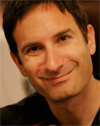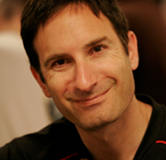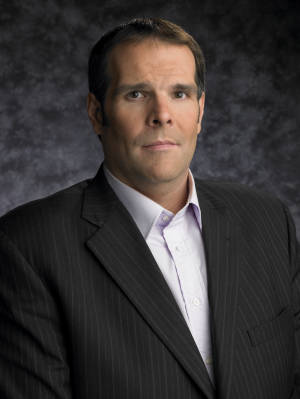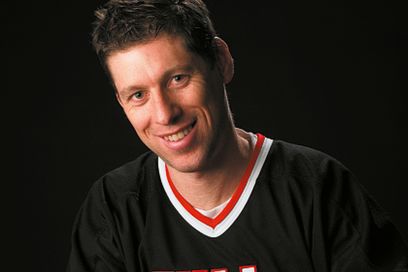By Rafe Furst
 At the final table of the World Series of Poker of this year s media gave all to say that it n was as a pro at the table: Mike Matusow. We learned later that the champion of this year, Joseph Hachem, led a career of 13 years as a chiropractor before live poker. The other 7 players at the table have all earned a minimum of $ 1 million. It n is not risky to say that now, most between them today see themselves as pros. What does this mean?
At the final table of the World Series of Poker of this year s media gave all to say that it n was as a pro at the table: Mike Matusow. We learned later that the champion of this year, Joseph Hachem, led a career of 13 years as a chiropractor before live poker. The other 7 players at the table have all earned a minimum of $ 1 million. It n is not risky to say that now, most between them today see themselves as pros. What does this mean?
Three myths about professional poker players
Myth #1: Either I'm a pro, either I n am not one
Consider the following players. Which are lovers and which are pros?
Adam
Adam playing tournaments full-time. He was winner of several thousands of dollars for several months and has lost everything month d after. He always borrows money l of the poker pros. He n has no life outside the world of poker and think constantly: "J would have liked having certain skills and experiences that would allow me d having a normal job."
Betty
To this day, Betty is an accountant who made $50 K per year. She plays poker in his spare time. One year, she won $20K by playing poker, and another year, she did $100 K. It rarely has a year loser.
Charlie
Charlie learned to play a few years ago attended his first big tournament the prestigious "WPT London" and won a scholarship more than interesting: $500K, plus any hype and media coverage. He lost something like $350 K in the 11 following months playing in several big tournaments and not making any stock exchange. It continues to have a good bankroll through a few big contracts of advertisements of poker sites online to guarantee 1 million per year over the next 3 years. All that it has to do is continue to play in all the big tournaments in endorsing their products.
Debbie
Debbie has a bankroll of $500 K, it won (or lost)-$50 K and $200 K per year by playing a very erratic schedule. She travels across the city where his instincts guide and has l ambition d have a family. One day. But not now.
Eddie
Eddie only play online poker. It has a fixed schedule and plays exactly 8 hours of poker a day, five days week, playing on exactly 4 tables at once $5-$10 limit hold ' em. He won the surprising amount of $100 / hr. He brings his family to vacation twice a year, plays tennis and goes to the opera in weekends.
Myth #2: I'd be so much happier if I could only play poker
TRUTH: C is pleasant to play 1 hour or 2 a day.
BUT: It could not be so pleasant that much to do as this activity by excluding other interests, like family and friends.
TRUTH: C is less stressful to play poker for fun or as a hobby.
BUT: It can be really stressful if you win at poker to pay your bills.
TRUTH: The winners of the big tournaments on TV have the air of real rock stars.
BUT: What are you doing 99% of the other players that you don't see?
Myth #3: I n didn't need a big bankroll to be a pro
Look at the long list of World Champions who have spent several years making tournaments without any scholarship or without making a final table. As I l have already written, it takes something like $500K to afford d enter all big events.
Ask your favorite pro how often he was penniless in his career and how many times he has had to take a loan to his family or his good friends.
Poker is an amazing game; a ton of guaranteed fun and the game n has never been as profitable as today today. But try to put it all in perspective.
Poker n has not to consume your life. You can make a lot of money with poker and you can do so without putting aside other good aspects of life.
Financially, mentally and socially, it is preferable to enter the poker in your life rather than d organize your life according to your poker.
To return to the players in the introduction, c is clear that Eddy is a pro. And c is also clear (to me anyway) as Adam n is not the same s he believes that it is an or that the public believes that it is a. You'll see yet perhaps often on TV. With regard to the other three, I do not know if we can call them pros, but I n would certainly not be in their shoes.
"Professional" is just a Word. Being a professional poker player n is not the same thing as be a poker player who has success.
In conclusion: n you d need not be a professional to be a champion of poker.
 At the final table of the World Series of Poker of this year s media gave all to say that it n was as a pro at the table: Mike Matusow. We learned later that the champion of this year, Joseph Hachem, led a career of 13 years as a chiropractor before live poker. The other 7 players at the table have all earned a minimum of $ 1 million. It n is not risky to say that now, most between them today see themselves as pros. What does this mean?
At the final table of the World Series of Poker of this year s media gave all to say that it n was as a pro at the table: Mike Matusow. We learned later that the champion of this year, Joseph Hachem, led a career of 13 years as a chiropractor before live poker. The other 7 players at the table have all earned a minimum of $ 1 million. It n is not risky to say that now, most between them today see themselves as pros. What does this mean?Three myths about professional poker players
Myth #1: Either I'm a pro, either I n am not one
Consider the following players. Which are lovers and which are pros?
Adam
Adam playing tournaments full-time. He was winner of several thousands of dollars for several months and has lost everything month d after. He always borrows money l of the poker pros. He n has no life outside the world of poker and think constantly: "J would have liked having certain skills and experiences that would allow me d having a normal job."
Betty
To this day, Betty is an accountant who made $50 K per year. She plays poker in his spare time. One year, she won $20K by playing poker, and another year, she did $100 K. It rarely has a year loser.
Charlie
Charlie learned to play a few years ago attended his first big tournament the prestigious "WPT London" and won a scholarship more than interesting: $500K, plus any hype and media coverage. He lost something like $350 K in the 11 following months playing in several big tournaments and not making any stock exchange. It continues to have a good bankroll through a few big contracts of advertisements of poker sites online to guarantee 1 million per year over the next 3 years. All that it has to do is continue to play in all the big tournaments in endorsing their products.
Debbie
Debbie has a bankroll of $500 K, it won (or lost)-$50 K and $200 K per year by playing a very erratic schedule. She travels across the city where his instincts guide and has l ambition d have a family. One day. But not now.
Eddie
Eddie only play online poker. It has a fixed schedule and plays exactly 8 hours of poker a day, five days week, playing on exactly 4 tables at once $5-$10 limit hold ' em. He won the surprising amount of $100 / hr. He brings his family to vacation twice a year, plays tennis and goes to the opera in weekends.
Myth #2: I'd be so much happier if I could only play poker
TRUTH: C is pleasant to play 1 hour or 2 a day.
BUT: It could not be so pleasant that much to do as this activity by excluding other interests, like family and friends.
TRUTH: C is less stressful to play poker for fun or as a hobby.
BUT: It can be really stressful if you win at poker to pay your bills.
TRUTH: The winners of the big tournaments on TV have the air of real rock stars.
BUT: What are you doing 99% of the other players that you don't see?
Myth #3: I n didn't need a big bankroll to be a pro
Look at the long list of World Champions who have spent several years making tournaments without any scholarship or without making a final table. As I l have already written, it takes something like $500K to afford d enter all big events.
Ask your favorite pro how often he was penniless in his career and how many times he has had to take a loan to his family or his good friends.
Poker is an amazing game; a ton of guaranteed fun and the game n has never been as profitable as today today. But try to put it all in perspective.
Poker n has not to consume your life. You can make a lot of money with poker and you can do so without putting aside other good aspects of life.
Financially, mentally and socially, it is preferable to enter the poker in your life rather than d organize your life according to your poker.
To return to the players in the introduction, c is clear that Eddy is a pro. And c is also clear (to me anyway) as Adam n is not the same s he believes that it is an or that the public believes that it is a. You'll see yet perhaps often on TV. With regard to the other three, I do not know if we can call them pros, but I n would certainly not be in their shoes.
"Professional" is just a Word. Being a professional poker player n is not the same thing as be a poker player who has success.
In conclusion: n you d need not be a professional to be a champion of poker.




